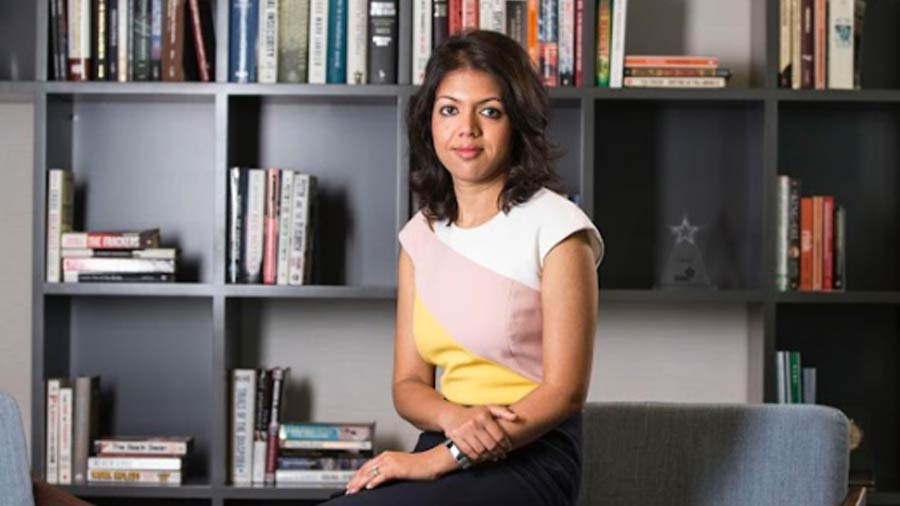Oil is to the world what blood is to the human body. Stop the flow of oil and the world can come to a standstill. On average, more than 88 million barrels of oil are consumed every day, a rate that will have the Earth running out of oil in about 53 years.
How do we preserve something we constantly need more of? How can oil be used simultaneously for the present and the future? These are some of the questions that Amrita Sen, co-founder and Chief Oil Analyst at London’s Energy Aspects, has been grappling with for years. Amrita is an oil seer (if we may call her that!) whose expertise lies in forecasting oil prices and then collaborating with companies as well as governments to deal with its effects.
My Kolkata caught up with Amrita to dig deep into the most pertinent issues affecting the oil industry, her professional journey at Energy Aspects, her Kolkata connection, her passion for running and more.
Edited excerpts from a Zoom call connecting a scorching Kolkata afternoon and an overcast London morning follow.
Durga Puja, phuchka and Mainland China

Amrita spent the first 18 years of her life in Kolkata before heading off to Warwick for her Bachelor’s degree Courtesy: Amrita Sen
My Kolkata: Were you born and brought up in Kolkata? How long did you spend in the city before moving out?
Amrita Sen: Yes, I was born and brought up in Kolkata and I left when I was about 18 years old. Although I’ve spent a lot of time in Mumbai and Delhi, Kolkata is the only Indian city in which I’ve lived. It’s the Indian city I know the best.
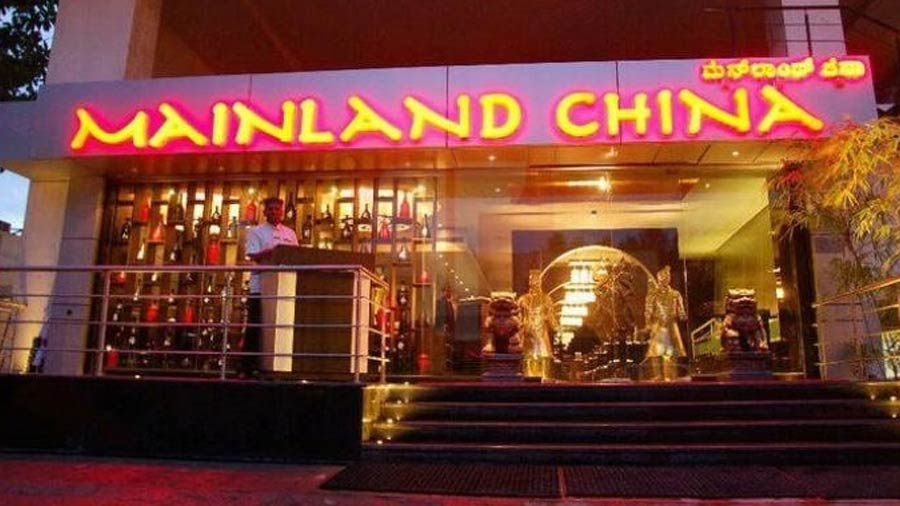
Mainland China is one of Amrita’s favourite restaurants in Kolkata Twitter
How often do you get to come back to Kolkata? What are your favourite places to visit/eat out at when you are in Kolkata?
I come back fairly often to Kolkata, at least once a year for sure. It used to be twice or thrice a year when my grandmother was alive. I have to travel to India frequently for work because a lot of our clients are based in India. Whenever I’m in India, I try to spend at least a weekend in Kolkata. Coming back to Kolkata means visiting my parents, visiting my home, and savouring the street food of the city, especially the phuchka and bhel puri. I also like Indo-Chinese restaurants such as Mainland China. I don’t relate much with the malls that have come up in the city recently. My best memories still go back to Durga Puja and going pandal-hopping around North Kolkata, where my mother is from.
Kolkata and London are similar in terms of people culture

Both London and Kolkata are very warm and welcoming, feels Amrita Twitter
In popular imagination, London, where you have been based for almost two decades, and Kolkata seem to share a number of similarities. Do you agree? Or have you found them to be very different cities?
Of course, they are very different cities. The lack of honking for one in London. And people actually follow rules while driving here. But there are similarities, too. Both are very multicultural cities, even though Kolkata may not have as many foreigners as London, which is quite the melting pot. Kolkata is definitely more laidback, though. So, in terms of work culture, there are no similarities. But when it comes to people culture, both cities are very warm and welcoming. Then there are the obvious parallels between iconic monuments like Buckingham Palace and Victoria Memorial and also in terms of little things in everyday life, like putting your hand up and crossing the road. Whether in Kolkata or in London, cars usually stop if you put your hand up!
I had the best time of my life at university, in Warwick and Cambridge
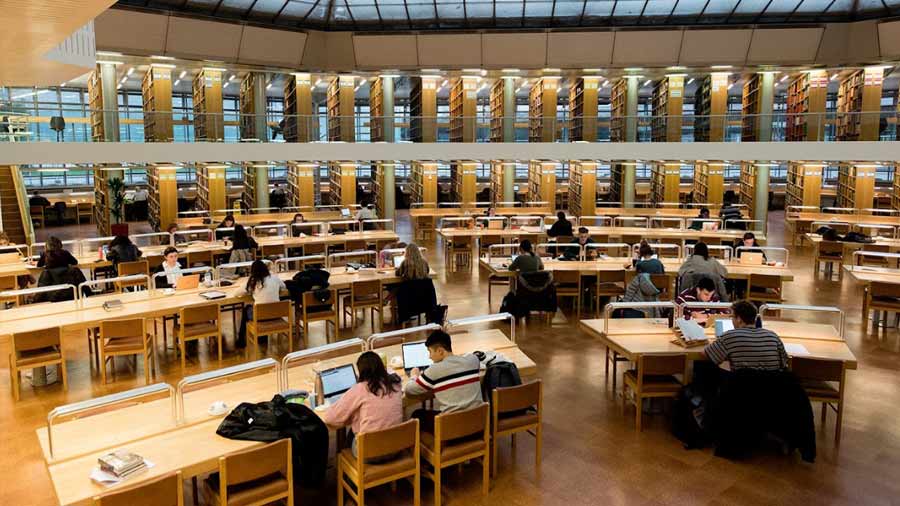
Amrita highlights soft skills as among the most valuable lessons she learnt at UK universities Cambridge University
You studied economics (Bachelor’s degree) at the University of Warwick and then completed your MPhil in economics from the University of Cambridge. What were your most important takeaways from your time at Warwick and then Cambridge?
I had the best time of my life at university and made my best friends in those years. When I was in India, I was studying from home and leading a very sheltered life. But when you come to the UK, you have to become independent and strong really quickly. When I was at Warwick, I was involved in a lot of extracurricular activities. I ran One World Week, the world’s largest student event, parallel to my studies, so it was an incredibly busy time. Raghuram Rajan and other distinguished professors came and spoke at an event, for which I had to manage multiple aspects. The soft skills I learnt at Warwick helped me a lot, even today they come in handy.
At Cambridge, I was able to delve deeper into economic philosophy and thought, because the focus is much more along those lines at a place like Cambridge or Oxford, as compared to, say, London School of Economics (LSE), where the approach is much more mathematical. It was really hard at Cambridge, since I was also applying for jobs simultaneously. But I made many new friends, we’d go punting frequently, and every weekend we’d try out the food of a different college since Cambridge is a collegiate university. They are very happy memories.
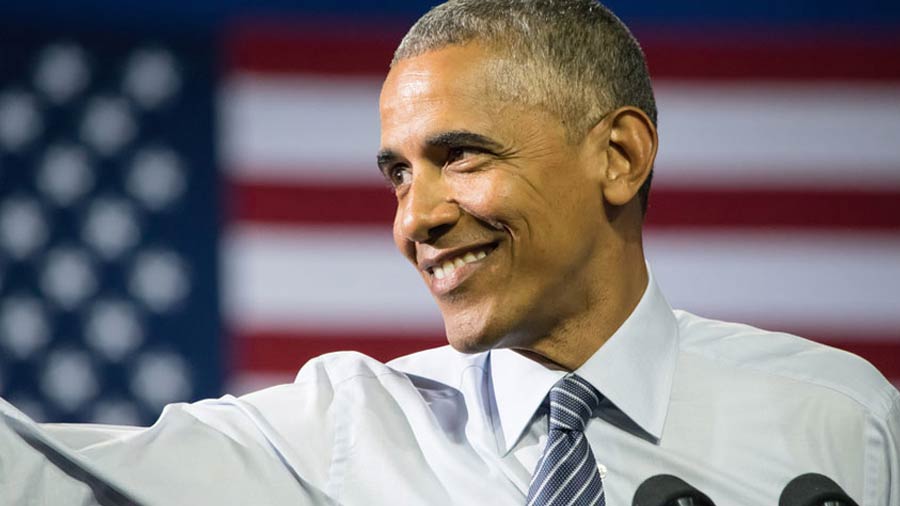
The regime of Barack Obama brought about a major shift in US oil policy, explains Amrita TT Archives
Your PhD thesis (which she completed from SOAS University of London) is on US oil and the limits to arbitrage. Can you elaborate on its premise and how it analyses American oil hegemony?
The US is among the biggest oil producers in the world. Technically, Saudi Arabia has more capacity, so it could produce more, but the US usually ends up producing the most, depending on which definition of production you take. Between the 1970s and the presidency of Barack Obama, the US had banned oil exports. That was fine as long as the US imported a lot of oil. But then the “Shale Revolution” took place (the combination of hydraulic fracturing and horizontal drilling that significantly boosted production of oil and natural gas in the US) in the mid 2000s and it had ramifications. For example, the price that you were getting for petrol in India became 30 to 50 per cent higher than what you were getting in the US. And that’s where the concept of arbitrage comes in, where you price everything in such a way that they can be accessible in a global market. My PhD looked at this in the context of US government interventions and policy, which set certain limits and caused distortions with respect to the economics of oil.
My boss at Barclays told me that I had a knack for oil
Before Energy Aspects, you spent five years looking after commodities research at Barclays Capital. How did that role prepare you for the road ahead?
I was hired by Barclays after my degree at Cambridge. I had offers from other places but they were related to roles in asset management. I chose Barclays because it was the closest to my interests in economics and mathematics. I was looking after commodities research and my then boss told me that this was essentially applied economics. Equities and assets aren’t tangible per se, but my work was, as I was dealing with all kinds of commodities, from grains to sugar to wheat and metals. Within a year of my time at Barclays, my boss told me that I had a knack for oil. That’s when I started to specialise. I’d go talk to traders, refineries, even airlines to try and forecast the price of oil. That’s where I got a lot of exposure.
The big call we made was that US crude oil would trade above international market rates

Almost 10 years old, Energy Aspects works with companies and governments across the world Energy Aspects
What led you to found Energy Aspects in 2012? Could you explain what your role as Chief Oil Analyst at Energy Aspects entails?
While at Barclays, I could see that the oil market was changing. Due to the US oil policies, which I mentioned earlier, markets were becoming more localised rather than globalised. China’s actions also accelerated the same trends. I began to notice a gap in the market. Banks tended to do very big picture research about where the price of oil was going. But I started looking at the micro side of it, pipelines and all these little things. The traders also told me that there was an opportunity in what I had identified. I was 27 and thought to myself, what could be the downside?
So I went off with two of my friends at Warwick (one of whom also became her husband) and set up Energy Aspects in 2012. The three of us had previously been instrumental in running One World Week at Warwick, so we knew we could work together. Within a few months, we had multiple clients on board and over time we expanded our research niche from oil to natural gas, emissions, energy transition, electricity, among others. The big call that we made, based on the pipelines, was that US crude oil would trade above international market rates. That’s how people started noticing us.
A decade on, we have 140 people working for us. We acquired a company last January and have offices in Houston, New York, Singapore and Tokyo. We’re looking to set up our first office in India, which will be in Kolkata, hopefully by July this year. We’ve been really lucky to have grown the way we have.
As for my role, I’m the head of content and research. My day-to-day work still has a lot to do with oil, though I’m also looking at energy transition and green energy. I coordinate with oil companies and government ministers from OPEC countries, but my primary task is research, as that’s my strong suit. I let the others look after the accounts and the business side of the company.
The politicians haven’t done a good enough job to prepare the people for the high prices of oil
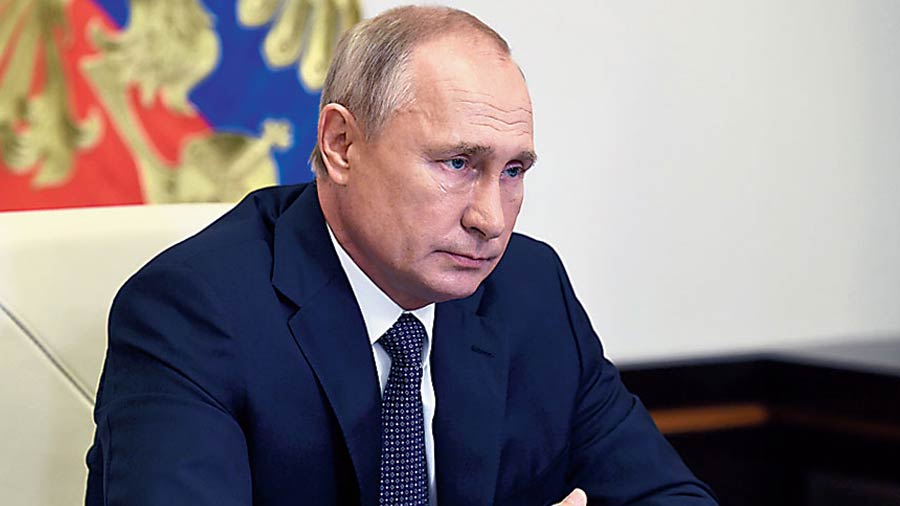
High prices for oil are the biggest challenge of the Russian invasion of Ukraine, argues Amrita TT Archives
The oil markets have had a turbulent time as a result of the Russian invasion of Ukraine. What are the most concerning trends right now in the oil markets that can be directly linked to Russia’s military action?
Even before the Russian invasion, one of my biggest concerns has been the lack of investment in oil around the world. Three years before Covid-19, we had made the call that oil was going to go above $100 a barrel, something that got a lot of pushback at the time. But we realised that demand doesn’t fall that quickly. For all the talk of renewables, energy demand is still growing. Take India, for example. Each year, we have millions of people entering the middle class. So, of course, energy consumption will grow.
Coming to Russia, it produced about 11 million barrels per day before the invasion of Ukraine. Right now, production is down by almost 1.7 million barrels per day. In the medium term, with sanctions in place, India and China can help Russia, but their technology is not at par with Western technology. This means that we might lose a million barrels per day of Russian production, if not more, for years to come. If there was investment going around elsewhere, I’d be less worried. But there’s very little spare capacity right now, it’s just Saudi Arabia and the UAE.
The biggest challenge we’re going to face because of the Russian invasion is that there are going to be high prices for oil. But the politicians haven’t done a good enough job to prepare the people for it.
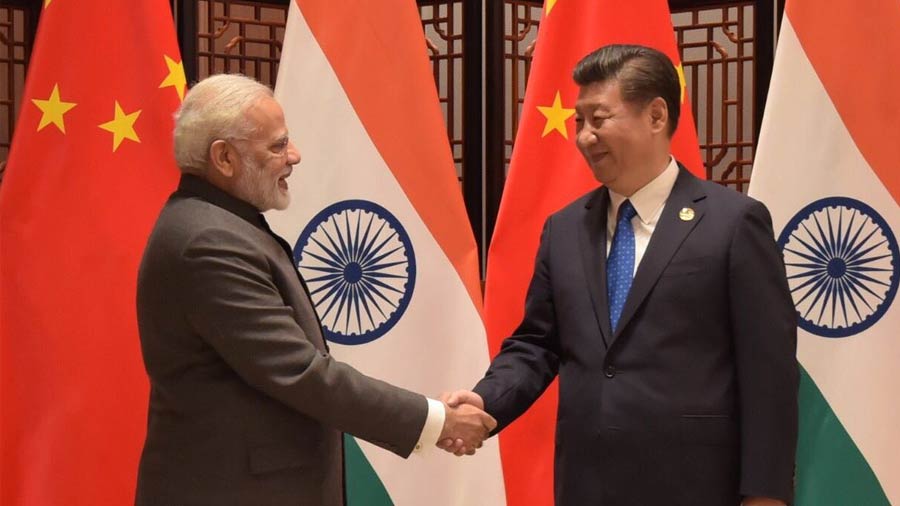
Coal remains the biggest obstacle on the issue of energy transition, especially in India and China TT Archives
It’s a trainwreck waiting to happen. It can shoot up to $150 for one barrel of oil
How is the oil market coping with growing demands, especially in the context of energy transition that is becoming increasingly influential in policy decisions?
When it comes to energy transition, oil and gas have been dragged into the discussion, even though coal remains the biggest issue, particularly in places like India and China. The issue is the growing demand for energy, but politicians haven’t been able to address that, because in democracies, we’re always running from one election to another. In the West, governments should use their funds to pay the poorest people and redistribute. Almost every country is coming up with subsidies, reducing tariffs on electricity, all of which mean that demand for energy won’t go down. At the same time, we don’t have the supply. It’s a trainwreck waiting to happen. We’re already above $100 for one barrel of oil. I won’t be surprised if in the coming months or years, oil shoots up to $150 or higher.
The West has to reduce its energy consumption; the East can get more efficient about it
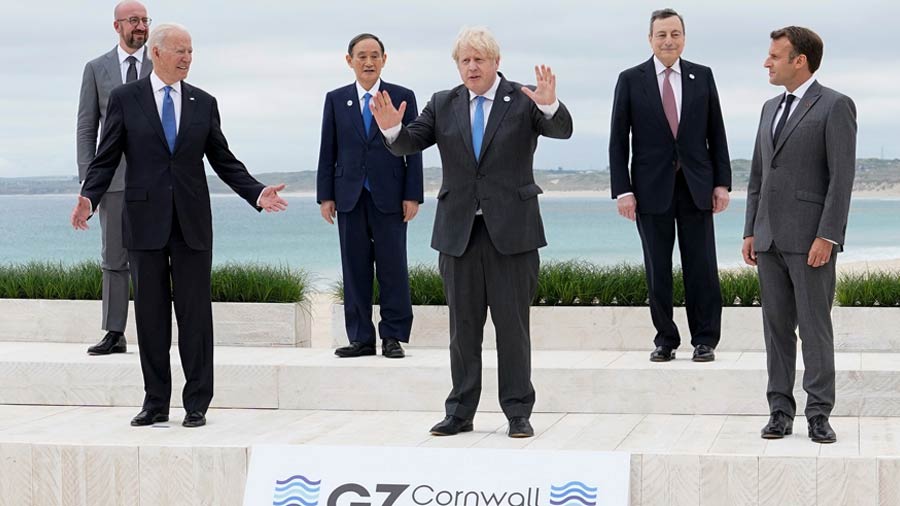
The West needs to step up for cleaner energy to be feasible, thinks Amrita TT Archives
How important is it for the oil industry to adapt in order to accommodate sustainable development? Since energy transition cannot happen without oil and gas, how can they be made cleaner going forward?
The oil and gas industry has been late to the game, and as part of the industry, I can say that the industry has been obnoxious about how oil and gas are required in the long term. I agree that they’re required in the long term. From the clothes we wear to the medicines we consume, so much of it relies on oil and its derivatives. But the reason why oil and gas companies are facing so much pressure is largely because they haven’t done a good enough job educating people. Governments are giving into public pressure and arguing that we need to get rid of all oil and gas, while the actual need is to clean up oil and gas, to clean up the processes of production. We can put a carbon tax, which is absolutely fine. Yes, that will increase the costs but companies will be forced to clean up, be it through carbon capture and storage (CCS) or other methods.
But the West also needs to step up, especially when it is the population in the West that is consuming the most energy. It’s the West that has to reduce its energy consumption while the East can get more efficient about it.
It’s time for India to be smart to protect its oil interests
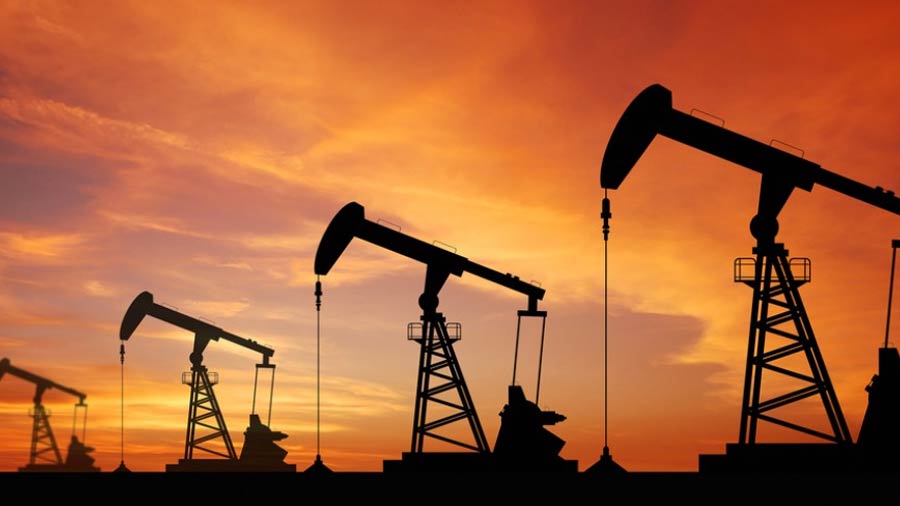
Amrita characterises India’s reliance on the Middle East to meet its oil demands TT Archives
According to the latest statistics, India imports more than 80 per cent of the oil that it needs. Is so much reliance on external oil dangerous and what can India do to boost indigenous oil production?
In terms of indigenous production, I just don’t see there being enough oil reserves to leapfrog the quantities India is already producing right now. That’s partly why India is so reliant on the Middle East, which works out well because Middle Eastern countries will bend over backwards to do deals with India since they are looking at strong demand growth for the next decade and more. And that demand isn’t going to come from the West. India also has a geographical advantage, but India has been difficult with its own terms and conditions. I feel it’s time for India to be smart about this to protect its own oil interests.
Over the last decade, many commentators believe that data has become the new oil, except that it leaks faster. In the digital age of data, does oil still have the geopolitical heft it used to at the start of the century?
Geopolitics and oil are still very much synonymous. Some of the biggest producers – Saudi Arabia, Iraq, Iran, Libya – are intrinsically linked with geopolitical complications. Then there’s the US, which is the biggest producer, but still thinks like a consumer. That’s where a lot of the geopolitical tensions come in.
In terms of the comparison with data, let’s just put it this way – the next war will probably be a cyber war, so that arguably makes data more important as a geopolitical instrument. But let’s assume that there’s a cyberattack on one of the Middle Eastern oil producers. What’s the physical impact? It’s still that the oil isn’t going to flow. It doesn’t matter whether data has more or less geopolitical heft. The eventual outcome will still play out in terms of physical flow of oil as far as the oil producing countries are concerned.

Amrita describes herself as a fitness enthusiast Courtesy: Amrita Sen
I take out an hour everyday to run, box or go to the gym
Shifting gears to your personal life, your Twitter says that you are a “part-time kickboxer”. When did you get into kickboxing and how often do you practise?
I started out with kickboxing around eight to 10 years ago. I’m actually more into running now, but I still box once every week. I’m a fitness person, so I take out an hour everyday to run, box or go to the gym.
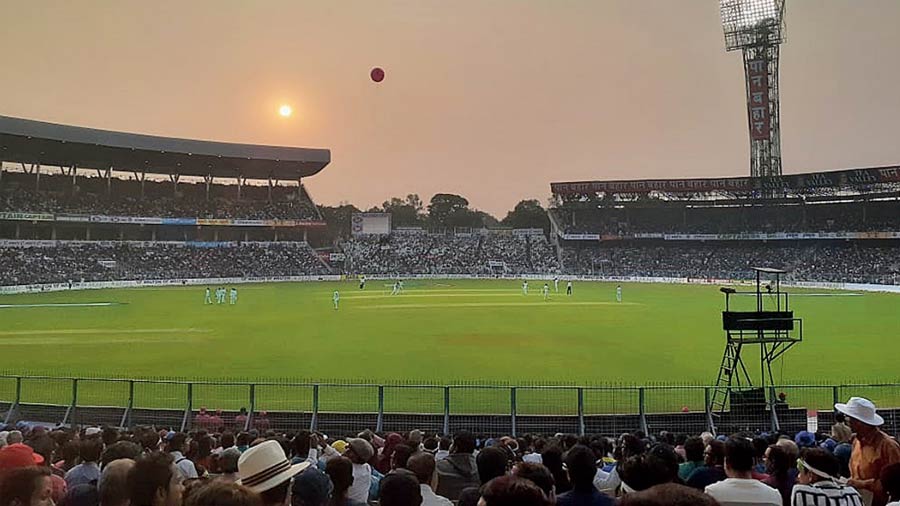
Apart from the Eden Gardens, Amrita has attended matches at Lord’s as well as the MCG TT
What are your other hobbies and interests? What do you do to zone out?
Sports are a big part of my life. I’ve been lucky enough to watch cricket at the Eden Gardens, the Melbourne Cricket Ground (MCG) and Lord’s. I also like tennis, Formula One and hiking. Anything outdoors gets me hooked. I also enjoy cooking.
I might move over to the policy side of the oil industry
Finally, where do you see yourself in five years’ time? Do you want to remain in the oil industry or shift your focus to something else in the future?
I see myself continuing in this industry. It’s a critical industry when it comes to economic growth, and I enjoy doing what I do. Waking up in the morning and realising that some market in some place can have an impact on what I’m doing can be tiring, but it’s also exciting. Perhaps the shift that might happen is with time I might move closer to the political side of it all, the policy part of the industry.
